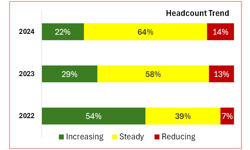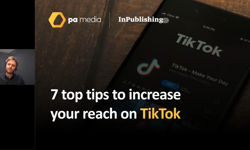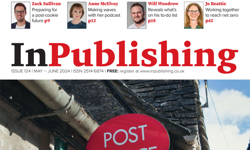
Enemy of the Press
Donald Trump on Twitter: "The Fake News hates me saying that they are the Enemy of the People only because they know it’s TRUE. I am providing a great service by explaining this to the American People. They purposely cause great division & distrust. They can also cause War! They are very dangerous & sick!"
Trump speaking to Veterans of Foreign Wars: “Just remember, what you are seeing and what you are reading is not what’s happening. Just stick with us, don’t believe the crap you see from these people [pointing at reporters], the fake news.”
Five shot dead at US paper
Capital Gazette reporter Phil Davis after a gunman opened fire at his newspaper in Annapolis, Maryland, killing five staff: “There is nothing more terrifying than hearing multiple people get shot while you’re under your desk and then hear the gunman reload.”
David Simon on Twitter: "Two of my friends are dead in Annapolis. That there are unstable people with grievances against journalists is a given. That the US President has declared that journalists are ‘enemies of the people’ creates a climate that can encourage violence is extremely relevant as a newsroom is shot to pieces. Leadership?"
Paul Dacre retires as Daily Mail editor
Lord Rothermere on Paul Dacre, whose resignation as editor of the Daily Mail after 26 years was announced in June: “Paul is, quite simply, the greatest Fleet Street editor of his generation not only for his huge circulation successes on both the Mail and Standard but also for the sheer power of his many campaigns, investigations and crusades that have held power to account, given a voice to the voiceless and often set the political agenda through six prime ministerships."
Polly Toynbee in the Guardian: "Asked for the winning formula of his Daily Mail, Lord Northcliffe replied: 'I give my readers a daily hate.' No one has kept that flame burning more brightly than Paul Dacre, poisoner of the national psyche, bully-in-chief, whose iron whim has terrified prime ministers for a quarter of a century… Like all bullies he targets underdogs, imposing on the country racism, homophobia and philistinism, and shunning complexity and evidence."
Former Observer editor Roger Alton in a letter to the Guardian: "Paul Dacre is a very great man and a newspaperman of genius who has done as much to improve the quality of life in Britain as anybody I can think of. One of my great regrets about his departure is that the scoundrels, rogues and thieves who stalk this pleasant land will soon have a much freer ride than before.”
Geordie Greig made editor of the Daily Mail
Ex-Sun editor David Yelland on Twitter: "Putting remainer Geordie Greig in at the Daily Mail isn’t just big news it is revolutionary. This changes everything for Brexit and the consequences could be historic."
Paul Dacre in The Spectator: “Support for Brexit is in the DNA of both the Daily Mail and, more pertinently, its readers. Any move to reverse this would be editorial and commercial suicide.”
Guardian goes tabloid
The Sun in a leader: "THE Sun warmly welcomes the Guardian to the tabloid club. As of today, the cash-strapped newspaper has shrunk to save on costs after making a £38million loss in 2016/17. So, from one tabloid to another, here is our suggestion for them to turn around their failing fortunes: actually report some exclusive, rip-roaring stories."
Rudd quits over Windrush scandal
Guardian editor Kath Viner: "The resignation of the British home secretary, Amber Rudd, over the Windrush scandal marks an important moment for independent, investigative journalism, demonstrating how it can hold power to account in order unequivocally to change people’s lives for the better. The Guardian reporter Amelia Gentleman has spent the past six months exposing the truth of the suffering of the Windrush generation."
Observer scoop on Cambridge Analytica
The Observer's Carole Cadwalladr, who broke the Cambridge Analytica data mining story, on Twitter: "Yesterday @facebook threatened to sue us. Today we publish this. Meet the whistleblower blowing the lid off Facebook & Cambridge Analytica."
Carole Cadwalladr on Twitter on Mark Zuckerberg's appearance before Congress in Washington: "Remember this. #Zuckerberg only here because: #journalism. But #journalism broken because: @facebook."
Facebook's CTO Mike Schroepfer, appearing before the Culture and Media Committee, after he was asked to apologise for the company threatening to sue the Guardian and Observer for defamation: “We thought this was accepted cultural practice in the UK… I am sorry that journalists feel that we are trying to prevent them from getting the truth out.”
NME out of print
Paul Cheal, Time Inc UK group managing director, announcing NME was to go digital only: “Unfortunately we have now reached a point where the free weekly magazine is no longer financially viable. It is in the digital space where effort and investment will focus to secure a strong future for this famous brand.”
Danny Baker: "The NME never once asked me where I studied. Or what certificates I had. Or where I saw myself in 5 years. They just sent you to see some band and asked for 400 words on them. If they liked it they'd give you an album to review. Next thing you know you're in New York…"
Media slammed over Arena attack reports
Lord Kerslake's report into the Manchester Arena terrorist attack: "Families felt ‘hounded’ by the media, with reports of a ‘scrum’ of journalists outside hospitals; Children from two families - who lost a mother and brother, respectively - were offered condolences by reporters at their homes before the deaths had been officially confirmed; Hospital staff were offered £2,000 to speak to the press by way of a note hidden in a tin of biscuits."
Leveson 2 scrapped
Culture secretary Matt Hancock announcing part 2 of the Leveson Inquiry into the behaviour of the press will not go ahead: "We do not believe that this costly and time consuming public inquiry is the right way forward… It’s clear that we’ve seen significant progress, from publications, from the police and from the new regulator. The world has changed since the Leveson inquiry was established in 2011. Since then we have seen seismic changes to the media landscape.”
Corbyn on the press
Jeremy Corbyn in his Labour Party conference speech: "Journalists from Turkey to Myanmar and Colombia are being imprisoned, harassed or sometimes killed by authoritarian governments and powerful corporate interests just for doing their job. But here, a free press has far too often meant the freedom to spread lies and half-truths, and to smear the powerless, not take on the powerful."
Sale of Johnston Press
Roy Greenslade after debt-laden Johnston Press put the i and all its regional newspapers up for sale: “It’s a truly capitalist story: start small, serve citizens, make small profits; grow big, serve more citizens, make bigger profits; get huge, float on stock exchange, serve investors; borrow to get even more huge, serve investors, make managers rich… then explode."
Cliff Richard privacy ruling
Mr Justice Mann in his judgment in the Cliff Richard vs BBC privacy case: “I find that Sir Cliff had privacy rights in respect of the police investigation and that the BBC infringed those rights without a legal justification. It did so in a serious way and also in a somewhat sensationalist way. I have rejected the BBC’s case that it was justified in reporting as it did under its rights to freedom of expression and freedom of the press."
In praise of Inside Housing
Dickon Ross in InPublishing on how Inside Housing magazine highlighted the dangers of cladding on tower blocks before the Grenfell fire: "So, next time you hear someone remarking that no one, least of all the media, ever called out the conditions and the failings that led to the tragedy that was the Grenfell fire, you can correct them. They were just looking at the wrong media. At least one magazine was on the case and it was speaking truth unto power. The terrible shame is that those in power were not listening as they should."
In praise of a liquid lunch
Colin Dunne in Press Gazette bemoaning the end of the pub lunch culture in Fleet Street: "It shouldn’t have worked, but it did. In between swifties and quickies and long lunches and early evenings, out of all this emerged some marvellous copy. The tabloids were full of fun and merriment and the readers loved them. Now they are full of spite and anger. That’s what egg-and-cress sandwiches do to a man."
Peter Pringle in a letter to The Times: "In your otherwise excellent obituary of Philip Jacobson you state that the record-breaking eight-hour lunch he enjoyed in Bogotá was shared with “colleagues”. On the contrary, it was attended by just two people – myself and Philip. We were, between us, solely responsible for the 13 bottles of wine consumed that day. I believe it is only fair to the great tradition of Fleet Street lunches that the record on this matter should be set straight."
MSM and proud
Robert Peston on Twitter: "Pls give up trying to shame me by calling me MSM. It is pointless. I’ve worked for amazing MSM news organisations for decades. & some of you who use MSM as term of abuse wouldn’t recognize objective impartial journalism if it rolled over you in a monster truck. I am #MSMandProud"
Journalist silenced
David Aaronovitch in The Times on the murder of Saudi journalist Jamal Khashoggi in the Saudi consulate in Istanbul: "A year ago Khashoggi wrote in The Washington Post: 'I have left my home, my family and my job, and I am raising my voice… I can speak when so many cannot.' Now he cannot speak. But we can."
Jamal Khashoggi in his final column, published after his death, by the Washington Post: "Arab governments have been given free rein to continue silencing the media at an increasing rate. There was a time when journalists believed the Internet would liberate information from the censorship and control associated with print media. But these governments, whose very existence relies on the control of information, have aggressively blocked the Internet.”
Peter Preston
The Guardian on former editor Peter Preston, who died in January and was a contributor to InPublishing: "Peter Preston embodied some of the best qualities not just of this paper, but of journalism more widely. By hard work and personal example he showed how a newspaper could change and improve without losing touch with its roots. During his editorship of the Guardian, he introduced to a rather self-important paper a light touch that was not merely superficial. He loved his trade, and was a master of all aspects of newspaper editing, but he never supposed that the media were more important than their subjects."










